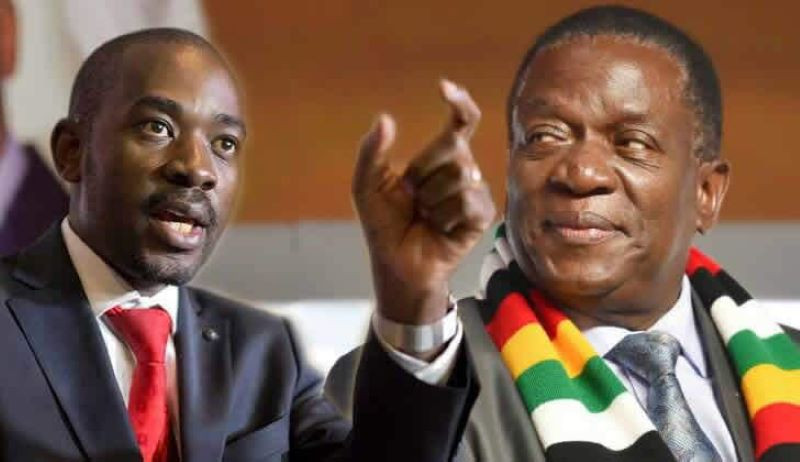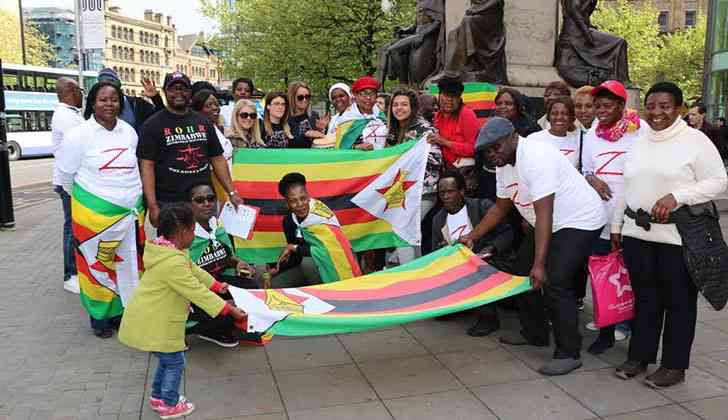
EVERYONE is entitled to change their mind and have a right to free political choice.
Dzikamai Mavhaire, a former Zanu PF politburo secretary, has crossed from the Citizens Coalition for Change (CCC), where he was a national executive committee member under the leadership of Nelson Chamisa, who abdicated, leaving this old man and thousands stranded without the leadership they invested their faith in at the beginning.
I can understand the psychology, disappointment and bewilderment of an old man who was telling President Emmerson Mnangagwa to pack and go in favour of a younger leader, feeling let down and watching all the drama that has transpired, with the latest one being when Cyclone Tshabangu struck again, “dismissing” the entire CCC executive, presumably including Mavhaire himself.
A few questions arise as this debate rages on with the big questions being:
- Was Mavhaire politically-stranded ?
- Is age getting the better of him in terms of political judgment?
- Were or are there many out there stranded like him?
- Who waits for such a circus as is happening in the opposition to bury him completely?
- Did Mavhaire jump back on the next familiar bus, Zanu PF ?
- How many and who would wave the bus on or catch a ride if offered?
- What is being offered on the bus that breaks principles so much?
- Was Mavhaire a man on a mission, with the mission now accomplished ?
- Has the political culture of floor crossing now come of age or it shall continue to be treated crudely as selling out, infiltration or defection?
- Has the 2030 agenda triggered recruitment of new support and forgiven old factional frontiers inside Zanu PF?
There are certainly more questions than those above, but there is an inescapable irony of jumping back onto what Mavhaire himself only recently so eloquently described as the source of the problem and seeking sanctuary in the political vortex itself, in the eye of the storm.
But these are political grown-ups and from their return statements, citing “development” strides by Mnangagwa, the motivation for return is also up for further debate, with some saying it is more personal and transactional than for public good.
Peace of mind, perhaps in all this 2030 hullabaloo in Masvingo province and the evident roll call taking place in that society.
I know Mavhaire like the back of my hand. We have been allies for as long as I started thinking politically. This is besides our clan relationship, where he lords over me as sekuru.
- I rejected Zanu PF scarf: Burna Boy
- NMB workers take on employer
- Mbavara eyes to resurrect Matavire’s music legacy
- I rejected Zanu PF scarf: Burna Boy
Keep Reading
He is a free spirit bordering on the controversial and it is not a coincidence that his most famous legacy will not be that he has rejoined Zanu PF. No! This is the second time he is rejoining Zanu PF. First time he did under my chairmanship of Masvingo district co-ordinating committee in 2003/4.
He had been jettisoned for his famous “Mugabe Must Go” statement, arguably his most famous cardinal standpoint in politics.
He was severely ostracised for this and ultimately with Edison Zvobgo Snr, who was believed to be the brains behind this push. Indeed, he partly was.
After admitting Mavhaire back, which did not warrant a State House reception [the late former President Robert Mugabe had no time for political trivia], I was to be suspended myself from Zanu PF for nine months only to make my dramatic entry into Parliament in September 2004, a story for another day.
I was part of the “Mugabe Must Go” conspiracy at the time. I have more on this. There were two camps competing to see his back, except they disagreed on the modus operandi, timing of his departure and the chief beneficiary of his ouster.
So to decide that he is going back is a typical Mavhaire sovereign decision and a minor controversial decision to bigger decisions he has made in politics like backing Zvobgo, Joice Mujuru and later Chamisa against incumbents.
He is a free thinker and a practical political operator, except that this time, it seems more of a “if you can’t beat them’, join them” decision, hence why many who know him for standing on principle struggled with his appearance at State House.
He ambushed and surprised his own loyal constituency, including the voiceless grassroots.
Notwithstanding, going back to Zanu PF is his choice happening in his political sunset years.
It is probably what his colleague Zvobgo was also processing when he was being hounded out of Zanu PF incidentally also in his sunset years.
Zanu PF is not the same anymore though, but which party remains static, for bad or for worse?
What Mavhaire has done is symbolic of the political season we have now entered nationally after the annihilation of credible opposition.
A season of new factional developments within Zanu PF itself ahead of its “elective” national conference, a political season of alignments and realignments.
Friend and foe will get together for a purpose, talk and talk until they see eye to eye, often through the eyes of emissaries.
Most of the deals are concluded out of selfish interest and expediency.
Many are saying Mavhaire has decided to back Mnangagwa but consider it rare given his critical mind.
It is his choice, but the only tragedy is when people are forced to pick one choice or told there is only one choice in town and only then is it judged patriotic and correct.
A Hobson’s choice!
The second tragedy is the inability of younger people to forge alliances and even find peace with each other in the national interest, even if it is in the personal, perpetuity and transactional interest as these madhalas are doing.
Kuvengana kusvika pakudimburana makumbo semakurwe (Counting each other out until hurting the perceived enemy) is now the trademark of our generation.
The culture of entitlement (veneism), long diagnosed as afflicting the ruling party, is manifesting in the “opposition” and other lone ranger politics at a frightening scale.
Our two extremes expressed in our binary politics needs a cure in modernised centre politics of moderation and inclusivity anchored by a culture of engagement, citizen “talking” and diplomacy.
No one single person can fix this, but we should agree to some process, some methodology and that process is holistically captured as national dialogue.
All infractions end up on the negotiation table and that includes historically ours the Lancaster House agreement curing the war of liberation; the 1987 unity talks curing the Matabeleland disturbances and near annihilation of Zapu; the Global Political Agreement curing the persecution of the MDC since 2000 peaking in 2008; all the constitutional conferences etc.
November 2017 still needs to find cure in dialogue. No election cures a coup, not even contrived court verdicts.
Talk about talks and talking to each other should be a national menu and begin in earnest. It’s politically healthy for nationals to talk and they should not be criminalised for contrary or preferred choices.
“I don’t talk to so and so” is more politically stupid than talking and gets us to where we are as a nation today, a people always gossiping, shouting and insulting each other.
So let’s stop throwing stones and insulting each other.
Make a move, no matter how unpopular, it surely leads somewhere as long as it triggers dialogue in the national interest.
Talking to each other is culturally sound and a significant small step towards resolving the Zimbabwean question.
Not talking at all is a terrible national weakness which fosters a gossip culture and propaganda substituting domestic cultural diplomacy.










